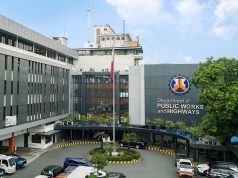EU tells Philippines to enhance efforts to comply with STCW convention

THE EUROPEAN Union (EU) late Thursday told the Philippines to enhance its efforts to comply with the International Convention on Standards of Training, Certification and Watchkeeping for Seafarers Convention (STCW Convention), after it warned the agency that failure to meet requirements before the deadline will result in Filipino marine officers being barred from working on EU-flagged vessels.
A delegation led by Vice-Admiral Robert A. Empedrad, the head of the Philippine Maritime Industry Authority (Marina) met with European Commission Director-General Henrik Hololei and other officials of the European Commission (EC) Directorate-General for Mobility and Transport (DG MOVE) in Brussels on Feb. 8.
“While Director-General Hololei was grateful to Vice-Admiral Empedrad for meeting informally in Brussels and for his oral presentation, he made clear that the Commission’s assessment would solely be based on the written reply to the Commission notification, to be provided no later than 10 March 2022,” the EU said in a statement.
“He reiterated that this formal reply should contain concrete evidence of the measures already taken by the Philippine authorities to ensure compliance with the country’s obligations under the STCW Convention,” it added.
Following an inspection conducted in 2020, the EC had notified the Philippines of a number of deficiencies — including serious ones — identified in the Philippine seafarers’ education, training, and certification system.
An earlier EU statement noted that “inconsistences have been identified in relation to the competences covered by the education and training programs leading to the issuing of officers’ certificates, as well as in several approved programs regarding teaching and examination methods, facilities and equipment. Inconsistencies have also been identified in the monitoring of inspections and evaluations of the schools. In addition, there have been concerning findings as regards simulators and on-board training.”
The Department of Foreign Affairs (DFA) had urged Marina, which is responsible for the implementation of the convention, to address deficiencies identified by the EU since 2006. “We strongly urge Marina to comply. The livelihoods of thousands of our seafarers are at stake.”
“I warned Marina and sent a memo to Art Tugade and the Palace. I will stand by the EU or EC which invited me in Brussels away from a useless conference to tell me what was up: 16 years of no action from Marina and the impending doom of our maritime industry,” Foreign Affairs Secretary Teodoro L. Locsin, Jr. said in a previous tweet.
According to Marina’s data, there are about 50,000 Filipinos working in EU-flagged ships, mostly from Malta, Greece, Norway, and Germany.
During the meeting, the EC also explained to the Philippines’ relevant authorities, specifically the Commission on Higher Education and Marina, the procedure to follow in the notification letter and the next steps following the Philippines’ reply. They provided concrete examples of what it expects to receive in the response.
In a previous release, the EC said it will assess the reply of the Philippines before determining its next course of action. “In case of a negative assessment, the European Union might eventually withdraw the recognition of the Philippines STCW system and, therefore, the certificates for masters and officers delivered by the Philippine maritime schools.”
“In that case, existing certificates for masters and officers would continue to be recognized until the time of their natural expiry, but new certificates would not be recognized to work on EU-flagged ships,” it added.
The EU maintained its hopes that the country would conduct the necessary internal reforms and amendments to comply fully with the STCW requirements by the indicated deadline, as it is aware of the contribution of seafarers to the Filipino economy.
Filipino seafarers, it added, are equally important to them since one of five foreign seafarers on EU-flagged ships is Filipino. — Alyssa Nicole O. Tan



